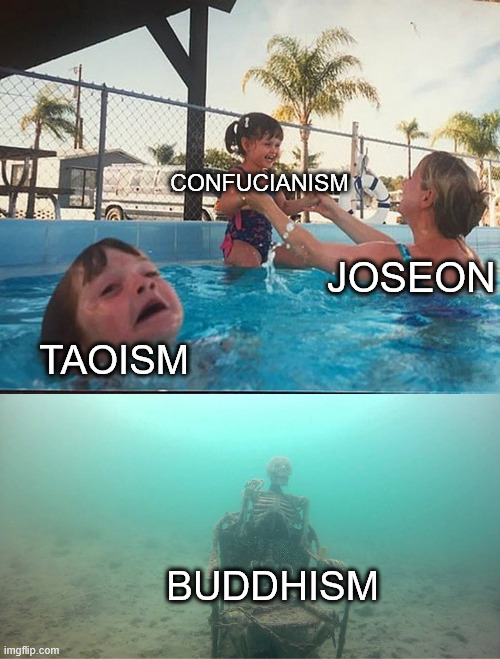Hello and welcome to another issue of our Tinto Flavour. Today we will take a look at the lands of Korea and Manchuria. Let’s start first with Korea, or at this point in time, the Kingdom of Goryeo:

It starts with some reforms and privileges:

Of which this unique one:

It also has some unique laws:

Unique advances:




Unique buildings:


And unique units:


There are some events related to the relationship between Korea and China:



And of course also an event for the rise of Joseon:

We could choose to condemn them to a life of rebellion, or to accept the rise of a new dynasty, giving a new name and flag:

And of course there are many other interesting historical events:

Let us move now to Manchuria and the Jurchen tribes.
Traditionally, Jurchen have been divided into three types, and this is represented with three different government reforms:



They have some advances available to all of them:





Another mechanic available to them is the a special type of International Organization called Jurchen Confederation, representing a somewhat banding together of different tribes responding to a single authority on certain matters while still maintaining total autonomy in most. At start, there are three Jurchen Confederations present: the Jianzhou, Hūlun, and Changbaishan.



Jurchen Confederations have laws, with some of them centered around the structures and operations of the confederation itself on an internal level, and also others that deal with how the confederation interacts with the outside world.



There are more laws in the confederations, not just these three.
As one would expect, unifying all the Jurchen tribes will lead to the possibility of forming a new identity:

When formed, it will trigger the following event, with an option to choose the name for the country:

And of course, when managing to conquer China you’ll get another event for the option of proclaiming a new dynasty:


And that is all for today, although there is much more in the game for you to discover. We'll be back tomorrow talking about the mechanics of Shintō and the Shogunate, see you then.
And remember to Wishlist Europa Universalis V now!

It starts with some reforms and privileges:

Of which this unique one:

It also has some unique laws:

Unique advances:




Unique buildings:










Traditionally, Jurchen have been divided into three types, and this is represented with three different government reforms:














There are more laws in the confederations, not just these three.
As one would expect, unifying all the Jurchen tribes will lead to the possibility of forming a new identity:




And that is all for today, although there is much more in the game for you to discover. We'll be back tomorrow talking about the mechanics of Shintō and the Shogunate, see you then.
And remember to Wishlist Europa Universalis V now!



